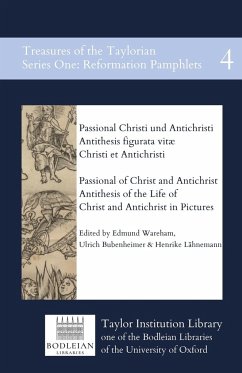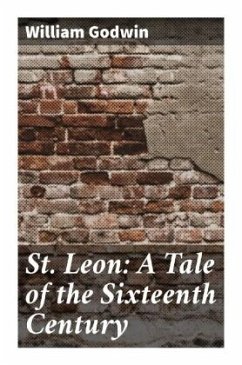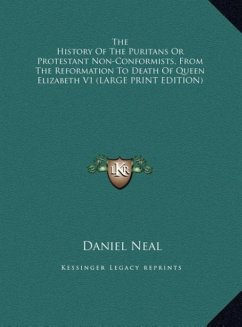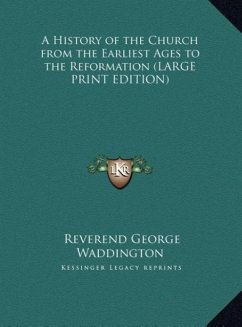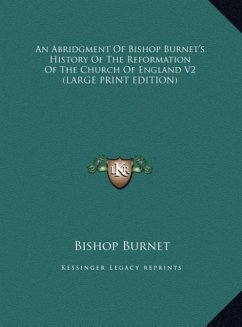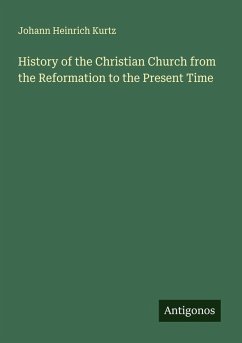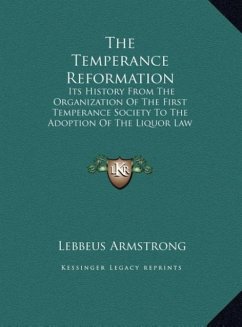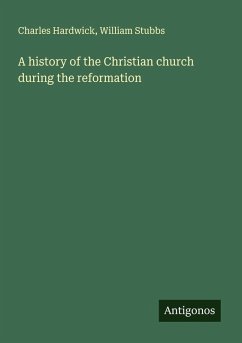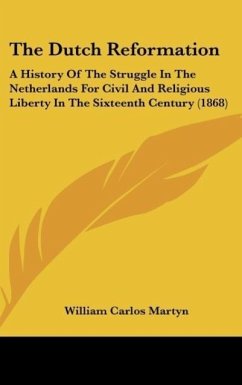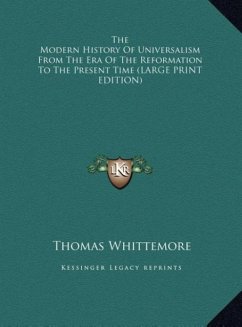
Von der Freiheit eines Christenmenschen - On the Freedom of a Christian
Versandkostenfrei!
Versandfertig in 1-2 Wochen
12,99 €
inkl. MwSt.

PAYBACK Punkte
6 °P sammeln!
Von der Freiheit eines Christenmenschen (On the Freedom of a Christian), published in November 1520 in German and soon afterwards in Latin, was the European bestseller of the 16th century. It is a bold statement of Martin Luther's Reformation theology in which he passionately argues for the primacy of faith. The work is built around the striking statement that Christians are both free and bound - free through God's grace and bound to their fellow human beings. It was written at a critical moment in the history of the Reformation, shortly before Luther was excommunicated in 1521. The Freedom tr...
Von der Freiheit eines Christenmenschen (On the Freedom of a Christian), published in November 1520 in German and soon afterwards in Latin, was the European bestseller of the 16th century. It is a bold statement of Martin Luther's Reformation theology in which he passionately argues for the primacy of faith. The work is built around the striking statement that Christians are both free and bound - free through God's grace and bound to their fellow human beings. It was written at a critical moment in the history of the Reformation, shortly before Luther was excommunicated in 1521. The Freedom treatise, which Lyndal Roper describes as the most beautiful writing of that time, captivated the German audience with its mystical language, talking about Christ marrying the human soul despite it being a "poor little whore", and about the joy of being a Christian 'mensch' (the German word for human being, a gender-neutral term instead of the usual word 'man') rather than about sin and punishment. It is written in a remarkably fresh and accessible style, with addresses to the reader, imaginary dialogues, and frequent colloquial touches. Luther also capitalizes on the contrast between the freedom and bondage of a Christian to set up apparent paradoxes which are then strikingly resolved. On the quincentenary of its first publication, this volume takes a new collaborative approach which makes use of digital methods to combine book-historical studies, digital editing, and linguistic analysis. The edition is based on four copies of the work, three in German and one in Latin, held in Oxford in the Taylor Institution Library. The first edition, Taylor Institution Library Arch. 8° G. 1520(25), printed by Rhau-Gruneberg in Wittenberg, forms the basis for the present volume, which for the first time includes an English translation of the German, rather than the Latin version of the pamphlet. The text and translation are offered with extensive explanatory footnotes, and the relationship between the German and Latin versions is explored in a chapter by Howard Jones, who puts forward new, linguistic arguments, that the German version was written first. Other chapters include: an introduction to the historical and philosophical background to the text by Dennis and Hannah Clemens, translated by Florence Butterfield and Raluca Vasiu; a history of the four copies in the Taylor Institution Library by Maximilian Krümpelmann; and a guide on how to read Reformation pamphlets from the facsimile by Henrike Lähnemann. The edition is a collective effort which grew out of History of the Book classes at the University of Oxford which are based at the Taylor Institution Library and an interdisciplinary Reformation project jointly undertaken by academics and students from the Faculties of Modern Languages and History; the translation was done by Anna Linton and Sharon Baker in consultation with Henrike Lähnemann and Howard Jones and with linguistic footnotes by Ari Warrington. The full text is also available as a podcast, read by Howard Jones, Julia Robertshaw, Eleanor Voak, Samuel Schulenburg, Emma Huber, Hannah Clemens, Dennis Clemens, Raluca Vasiu, Julia Bouquet, Lena Vosding, Marlene Schilling, Thomas Henderson, Kate Shore, Maximilian Krümpelmann, Kiara Hart, Carolin Gluchowski, Josephine Bewerunge, Caroline Lehnert, Anna Linton, Molly Ford, Susanne Herrmann-Sinai, Reinier van Straten, Ruth Görnandt, Elijah Ferrante, Mai-Britt Wiechmann, Linus Ubl, Luise Morawetz, Ari Warrington, Konstantin Winters, Timothy Powell, and Alexandra Burgar. Further assistance was offered by Samuel Heywood, Anhad Arora, Thomas Kaufmann, Ulrich Bubenheimer, John Flood, Martin Jones, Martin Keßler, Ralf Plate, Jonathan Reinert, Volker Leppin, Reinhold Rieger, and William Thurlwell. More information on https://editions.mml.ox.ac.uk/editions/freiheit-1520.




